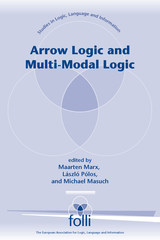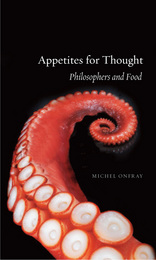
Tracing the edible obsessions of philosophers from Diogenes to Sartre, Onfray considers how their ideas relate to their diets. Would Diogenes have been an opponent of civilization without his taste for raw octopus? Would Rousseau have been such a proponent of frugality if his daily menu had included something more than dairy products? Onfray offers a perfectly Kantian critique of the nose and palate, since “the idea obtained from them is more a representation of enjoyment than cognition of the external object.” He exposes Nietzsche’s grumpiness—really, Nietzsche grumpy?—about bad cooks and the retardation of human evolution, and he explores Sartre’s surrealist repulsion by shellfish because they are “food buried in an object, and you have to pry them out.”
A fun romp through the culinary likes and dislikes of our most famous thinkers, Appetites for Thought will intrigue, provoke, and entertain, and it might also make you ponder a bite to eat.

To dismiss the work of philosophers and theologians of the past because of their limited perceptions of the whole of humankind is tantamount to tossing the tot out with the tub water. Such is the case when feminist scholars of religion and ethics confront Thomas Aquinas, whose views of women can only be described as misogynistic. Rather than dispense with him, Susanne DeCrane seeks to engage Aquinas and reflect his otherwise compelling thought through the prism of feminist theology, hermeneutics, and ethics.
Focusing on one of Aquinas's great intellectual contributions, the fundamental notion of "the common good"—in short, the human will toward peace and justice—DeCrane demonstrates the currency of that notion through a contemporary social issue: women's health care in the United States and, specifically, black women and breast cancer. In her skillful re-engagement with Aquinas, DeCrane shows that certain aspects of religious traditions heretofore understood as oppressive to women and minority groups can actually be parsed, "retrieved," and used to rectify social ills.
Aquinas, Feminism, and the Common Good is a bold and intellectually rigorous feminist retrieval of an important text by a Catholic scholar seeking to remain in the tradition, while demanding that the tradition live up to its emphasis on human equity and justice.
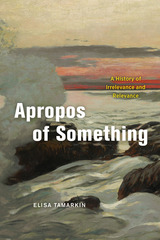
Before 1800 nothing was irrelevant. So argues Elisa Tamarkin’s sweeping meditation on a key shift in consciousness: the arrival of relevance as the means to grasp how something that was once disregarded, unvalued, or lost to us becomes interesting and important. When so much makes claims to our attention every day, how do we decide what is most valuable right now?
Relevance, Tamarkin shows, was an Anglo-American concept, derived from a word meaning “to raise or to lift up again,” and also “to give relief.” It engaged major intellectual figures, including Ralph Waldo Emerson and pragmatists and philosophers—William James, Alain Locke, John Dewey, and Alfred North Whitehead—as well as a range of critics, phenomenologists, linguists, and sociologists. Relevance is a struggle for recognition, especially in the worlds of literature, art, and criticism. Poems and paintings in the nineteenth century could now be seen as pragmatic works that make relevance and make interest—that reveal versions of events that feel apropos of our lives the moment we turn to them.
Vividly illustrated with paintings by Winslow Homer, Henry Ossawa Tanner, and others, Apropos of Something is a searching philosophical and poetic study of relevance—a concept calling for shifts in both attention and perceptions of importance with enormous social stakes. It remains an invitation for the humanities and for all of us who feel tasked every day with finding the point.

Considering Levinas’s critique of French liberalism and Nazi racial politics, and the links between them, Maldonado-Torres identifies a “master morality” of dominion and control at the heart of western modernity. This master morality constitutes the center of a warring paradigm that inspires and legitimizes racial policies, imperial projects, and wars of invasion. Maldonado-Torres refines the description of modernity’s war paradigm and the Levinasian critique through Fanon’s phenomenology of the colonized and racial self and the politics of decolonization, which he reinterprets in light of the Levinasian conception of ethics. Drawing on Dussel’s genealogy of the modern imperial and warring self, Maldonado-Torres theorizes race as the naturalization of war’s death ethic. He offers decolonial ethics and politics as an antidote to modernity’s master morality and the paradigm of war. Against War advances the de-colonial turn, showing how theory and ethics cannot be conceived without politics, and how they all need to be oriented by the imperative of decolonization in the modern/colonial and postmodern world.
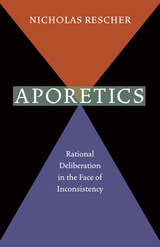
Rescher's in-depth examination reveals how aporetic inconsistency can be managed through a plausibility analysis that breaks the chain of inconsistency at its weakest link by deploying right-of-way precedence based on considerations of cognitive centrality. Thus while involvement with cognitive conflicts and inconsistencies are pervasive in human thought, aporetic analysis can provide an effective means of damage control.
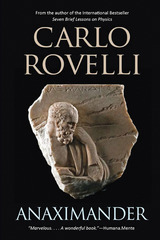
THIS EBOOK IS NO LONGER AVAILABLE.
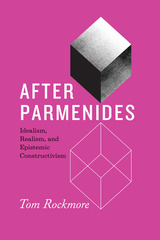
In After Parmenides, Tom Rockmore takes us all the way back to the beginning of Western philosophy, when Parmenides asserted that thought and being are the same. This idea created a division between what the mind constructs as knowable entities and the idea that there is also a mind-independent real, which we can know or fail to know. Rockmore argues that we need to give up on the idea of knowing the real as it is, and instead focus on the objects of cognition that our mind constructs. Though we cannot know mind-independent objects as they “really” are, we can and do know objects as they appear to us.
After Parmenides charts the continual engagement with these ideas of the real and the knowable throughout philosophical history from Plato and Aristotle to Descartes, Kant, Fichte, Hegel, Schopenhauer, Marx, and others. This ambitious book shows how new connections can be made in the history of philosophy when it is reread through a new lens.
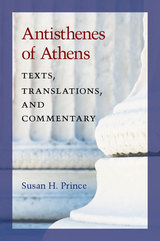

The enduring fascination of Plato's dialogues rests not only on the dazzling range of his arguments and opinions, but also on the extraordinary richness of his literary style. The great Greek philosopher captures the imagination and stimulates the curiosity of his readers through his expert use of the techniques devised by the rhetoricians and the poets of his time: Plato, the critic of art and poetry, shows himself a consummate artist.
This book is not a study of Plato's philosophy, but a contribution to the literary interpretation of the dialogues, through analysis of their formal structure, characterization, language, and imagery. Among the dialogues considered in these interrelated essays are some of Plato's most admired and influential works, including Gorgias, the Symposium, the Republic and Phaedrus. Special attention is paid to the personality of Socrates, Plato's remarkable mentor, and to his interaction with the other characters in the dialogues. The author also discusses particular problems such as the sources for our knowledge of Socrates, the origins of the dialogue form, Plato's use of myth, and the "totalitarianism" of the Republic.This combination of sympathetic literary criticism and exact historical scholarship makes The Art of Plato a valuable contribution to the study of one of the greatest of all Greek writers.
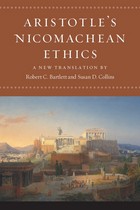
The Nicomachean Ethics is one of Aristotle’s most widely read and influential works. Ideas central to ethics—that happiness is the end of human endeavor, that moral virtue is formed through action and habituation, and that good action requires prudence—found their most powerful proponent in the person medieval scholars simply called “the Philosopher.” Drawing on their intimate knowledge of Aristotle’s thought, Robert C. Bartlett and Susan D. Collins have produced here an English-language translation of the Ethics that is as remarkably faithful to the original as it is graceful in its rendering.
Aristotle is well known for the precision with which he chooses his words, and in this elegant translation his work has found its ideal match. Bartlett and Collins provide copious notes and a glossary providing context and further explanation for students, as well as an introduction and a substantial interpretive essay that sketch central arguments of the work and the seminal place of Aristotle’s Ethics in his political philosophy as a whole.
The Nicomachean Ethics has engaged the serious interest of readers across centuries and civilizations—of peoples ancient, medieval, and modern; pagan, Christian, Muslim, and Jewish—and this new edition will take its place as the standard English-language translation.
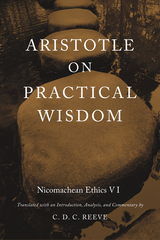
Nicomachean Ethics VI is considered one of classical philosophy’s greatest achievements. Aristotle on Practical Wisdom is the first full-scale commentary on this work to be issued in over a century, and is the most comprehensive and philosophically illuminating to date. A meticulous translation coupled with facing-page analysis enables readers to engage directly with the account of phronêsis or practical wisdom that Aristotle is developing, while a full introduction locates that account in the context of his ethical thought and of later ethical thought more generally. The commentary discusses the text line by line, illuminating obscure passages, explaining technical ones, and providing a new overall interpretation of the work and the nature of practical reason.
A companion volume, Action, Contemplation, and Happiness, expands on this interpretation to provide a startling new picture of Aristotle’s thought as a whole. Although the two books can be approached separately, together they constitute one of the most daring and original contemporary readings of Aristotle’s philosophy. Aimed at committed students of these notoriously difficult writings, C. D. C. Reeve’s engaging and lucid books should find a wide audience among philosophers, classicists, and all readers willing to wrestle with a thinker of unparalleled subtlety, depth, and scope.
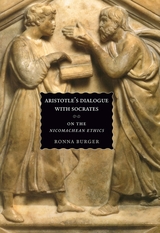
What is the good life for a human being? Aristotle’s exploration of this question in the Nicomachean Ethics has established it as a founding work of Western philosophy, though its teachings have long puzzled readers and provoked spirited discussion. Adopting a radically new point of view, Ronna Burger deciphers some of the most perplexing conundrums of this influential treatise by approaching it as Aristotle’s dialogue with the Platonic Socrates.
Tracing the argument of the Ethics as it emerges through that approach, Burger’s careful reading shows how Aristotle represents ethical virtue from the perspective of those devoted to it while standing back to examine its assumptions and implications.
“This is the best book I have read on Aristotle’s Nicomachean Ethics. It is so well crafted that reading it is like reading the Ethics itself, in that it provides an education in ethical matters that does justice to all sides of the issues.”—Mary P. Nichols, Baylor University
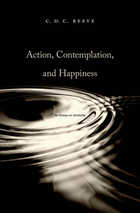
The notion of practical wisdom is one of Aristotle’s greatest inventions. It has inspired philosophers as diverse as Martin Heidegger, Hans-Georg Gadamer, Elizabeth Anscombe, Michael Thompson, and John McDowell. Now a leading scholar of ancient philosophy offers a challenge to received accounts of practical wisdom by situating it in the larger context of Aristotle’s views on knowledge and reality.
That happiness is the end pursued by practical wisdom is commonly agreed. What is disputed is whether happiness is to be found in the practical life of political action, in which we exhibit courage, temperance, and other virtues of character, or in the contemplative life, where theoretical wisdom is the essential virtue. C. D. C. Reeve argues that the dichotomy is bogus, that these lives are in fact parts of a single life, which is the best human one. In support of this view, he develops innovative accounts of many of the central notions in Aristotle’s metaphysics, epistemology, and psychology, including matter and form, scientific knowledge, dialectic, educatedness, perception, understanding, political science, practical truth, deliberation, and deliberate choice. These accounts are based directly on freshly translated passages from many of Aristotle’s writings. Action, Contemplation, and Happiness is an accessible essay not just on practical wisdom but on Aristotle’s philosophy as a whole.
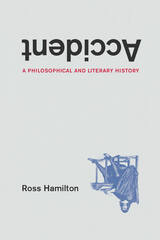
An accidental glance at a newspaper notice causes Rousseau to collapse under the force of a vision. A car accidentally hits Giacometti, and he experiences an epiphany. Darwin introduces accident to the basic process of life, and Freud looks to accident as the expression of unconscious desire. Accident, Ross Hamilton claims, is the force that makes us modern. Tracing the story of accident from Aristotle to Buster Keaton and beyond, Hamilton’s daring book revives the tradition of the grand history of ideas.
Accident tells an original history of Western thought from the perspective of Aristotle’s remarkably durable categories of accident and substance. Throughout antiquity and the Middle Ages, Aristotle’s distinction underwrote an insistence on order and subordination of the inessential. In a groundbreaking innovation, Hamilton argues that after the Reformation, the concept of accident began to change places with that of substance: accident became a life-transforming event and effectively a person’s essence. For moderns, it is the accidental, seemingly trivial moments of consciousness that, like Wordsworth’s “spots of time,” create constellations of meaning in our lives. Touching on a broad array of images and texts—Augustine, Dante, the frescoes of Raphael, Descartes, Jane Austen, the work of the surrealists, and twentieth-century cinema—Hamilton provides a new way to map the mutations of personal identity and subjectivity.
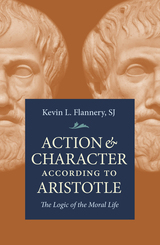
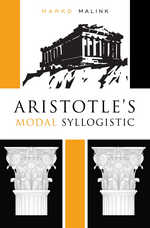
Aristotle was the founder not only of logic but also of modal logic. In the Prior Analytics he developed a complex system of modal syllogistic which, while influential, has been disputed since antiquity—and is today widely regarded as incoherent. In this meticulously argued new study, Marko Malink presents a major reinterpretation of Aristotle’s modal syllogistic. Combining analytic rigor with keen sensitivity to historical context, he makes clear that the modal syllogistic forms a consistent, integrated system of logic, one that is closely related to other areas of Aristotle’s philosophy.
Aristotle’s modal syllogistic differs significantly from modern modal logic. Malink considers the key to understanding the Aristotelian version to be the notion of predication discussed in the Topics—specifically, its theory of predicables (definition, genus, differentia, proprium, and accident) and the ten categories (substance, quantity, quality, and so on). The predicables introduce a distinction between essential and nonessential predication. In contrast, the categories distinguish between substantial and nonsubstantial predication. Malink builds on these insights in developing a semantics for Aristotle’s modal propositions, one that verifies the ancient philosopher’s claims of the validity and invalidity of modal inferences.
Malink recognizes some limitations of this reconstruction, acknowledging that his proof of syllogistic consistency depends on introducing certain complexities that Aristotle could not have predicted. Nonetheless, Aristotle’s Modal Syllogistic brims with bold ideas, richly supported by close readings of the Greek texts, and offers a fresh perspective on the origins of modal logic.
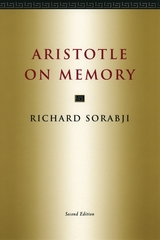
“Sorabji has produced a first-class book on an important topic. All Aristotelians, and anyone with an interest in any aspect of memory, will be in his debt.”—Jonathan Barnes, Isis
“Anyone concerned with Aristotle’s psychology, theory of mind, or rhetoric, anyone interested in mnemonic systems, and anyone trying to work out for himself a theory of memory, should read Aristotle’s treatise On Memory, with the comments by Richard Sorabji.”—International Studies in Philosophy
“Sorabji’s book is a sample of care, intelligence, and subtlety that the Anglo-Saxon philosophers do not hesitate to invest in such enterprises. . . . The notes seem to leave no detail, no textual difficulty unilluminated.”—Revue de Métaphysique et de Morale
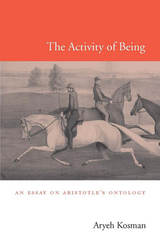
Understanding “what something is” is a project that has long occupied philosophers. Perhaps no thinker in the Western tradition has had more influence on how we approach this question than Aristotle, whose Metaphysics remains the locus classicus of rigorous examinations into the nature of being. Now, in an elegantly argued new study, Aryeh Kosman reinterprets Aristotle’s ontology and compels us to reexamine some of our most basic assumptions about the great philosopher’s thought.
For Aristotle, to ask “what something is” is to inquire into a specific mode of its being, something ordinarily regarded as its “substance.” But to understand substance, we need the concept of energeia—a Greek term usually translated as “actuality.” In a move of far-reaching consequence, Kosman explains that the correct translation of energeia is not “actuality” but “activity.” We have subtly misunderstood the Metaphysics on this crucial point, says Kosman. Aristotle conceives of substance as a kind of dynamic activity, not some inert quality. Substance is something actively being what it is.
Kosman demonstrates how this insight significantly alters our understanding of a number of important concepts in Aristotelian thought, from accounts of motion, consciousness, and essence to explanations of the nature of animal and divine being. Whether it is approached as an in-depth introduction to Aristotle’s metaphysics or as a highly original reassessment sure to spark debate, there can be no argument that The Activity of Being is a major contribution to our understanding of one of philosophy’s most important thinkers.
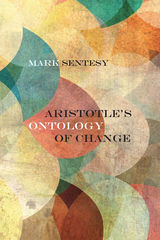
Aristotle may be the only thinker to propose a noncircular definition of change. With his landmark argument that change did, in fact, exist, Aristotle challenged established assumptions about what it is and developed a set of conceptual frameworks that continue to provide insight into the nature of reality. This groundbreaking work on change, however, has long been interpreted through a Platonist view of change as unreal. By offering a comprehensive reexamination of Aristotle’s pivotal arguments, and establishing his positive ontological conception of change, Sentesy makes a significant contribution to scholarship on Aristotle, ancient philosophy, the history and philosophy of science, and metaphysics.
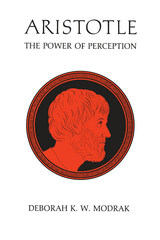
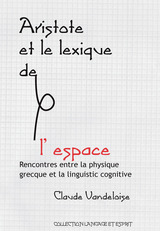

Although it is widely acknowledged that St. Augustine was a consummate artist as well as a great philosopher, and that he was deeply concerned with art, beauty and human values, relatively little attention has been paid to his theory of aesthetics. Now a distinguished Augustine scholar turns to this important subject and offers a book that is at once engaging, comprehensive and complete.
Father O'Connell begins with a paradox: how could so dedicated a literary artist propose, at times, a theory of art that amounts to the banishment of art? In attempting to answer this and other important questions, the author's purpose is not merely to recount but to retrieve St. Augustine's views. He suggests that Augustine's need to understand, and by understanding to exorcise, art's spell on him provides a key to all the philosophical and theological questions that absorbed him. Seen in this light, St. Augustine's aesthetic may lie at the very heart of his philosophy.
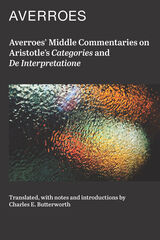
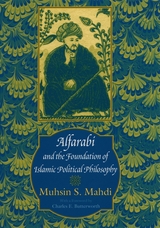
Beginning with a survey of Islamic philosophy and a discussion of its historical background, Mahdi considers the interrelated spheres of philosophy, political thought, theology, and jurisprudence of the time. He then turns to Alfarabi's concept of "the virtuous city," and concludes with an in-depth analysis of the trilogy, Philosophy of Plato and Aristotle.
This philosophical engagement with the writings of and about Alfarabi will be essential reading for anyone interested in medieval political philosophy.
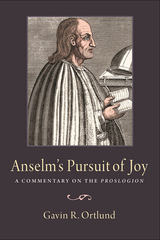
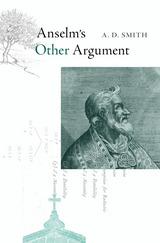
Anselm of Canterbury (1033–1109 CE), in his work Proslogion, originated the “ontological argument” for God’s existence, famously arguing that “something than which nothing greater can be conceived,” which he identifies with God, must actually exist, for otherwise something greater could indeed be conceived. Some commentators have claimed that although Anselm may not have been conscious of the fact, the Proslogion as well as his Reply to Gaunilo contains passages that constitute a second independent proof: a “modal ontological argument” that concerns the supposed logical necessity of God’s existence. Other commentators disagree, countering that the alleged second argument does not stand on its own but presupposes the conclusion of the first.
Anselm’s Other Argument stakes an original claim in this debate, and takes it further. There is a second a priori argument in Anselm (specifically in the Reply), A. D. Smith contends, but it is not the modal argument past scholars have identified. This second argument surfaces in a number of forms, though always turning on certain deep, interrelated metaphysical issues. It is this form of argument that in fact underlies several of the passages which have been misconstrued as statements of the modal argument. In a book that combines historical research with rigorous philosophical analysis, Smith discusses this argument in detail, finally defending a modification of it that is implicit in Anselm. This “other argument” bears a striking resemblance to one that Duns Scotus would later employ.
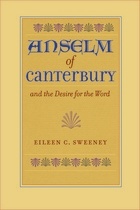
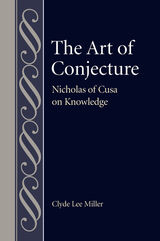
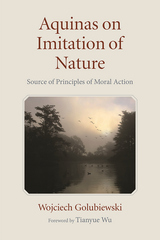
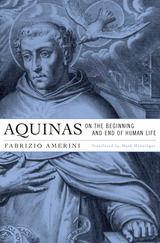
In contemporary discussions of abortion, both sides argue well-worn positions, particularly concerning the question, When does human life begin? Though often invoked by the Catholic Church for support, Thomas Aquinas in fact held that human life begins after conception, not at the moment of union. But his overall thinking on questions of how humans come into being, and cease to be, is more subtle than either side in this polarized debate imagines. Fabrizio Amerini—an internationally-renowned scholar of medieval philosophy—does justice to Aquinas’ views on these controversial issues.
Some pro-life proponents hold that Aquinas’ position is simply due to faulty biological knowledge, and if he knew what we know today about embryology, he would agree that human life begins at conception. Others argue that nothing Aquinas could learn from modern biology would have changed his mind. Amerini follows the twists and turns of Aquinas’ thinking to reach a nuanced and detailed solution in the final chapters that will unsettle familiar assumptions and arguments.
Systematically examining all the pertinent texts and placing each in historical context, Amerini provides an accurate reconstruction of Aquinas’ account of the beginning and end of human life and assesses its bioethical implications for today. This major contribution is available to an English-speaking audience through translation by Mark Henninger, himself a noted scholar of medieval philosophy.
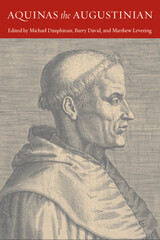

Aquinas on Virtue: A Causal Reading is an original interpretation of one of the most compelling accounts of virtue in the Western tradition, that of the great theologian and philosopher Thomas Aquinas (1224–1274). Taking as its starting point Aquinas's neglected definition of virtue in terms of its "causes," this book offers a systematic analysis of Aquinas on the nature, genesis, and role of virtue in human life.
Drawing on connections and contrasts between Aquinas and contemporary treatments of virtue, Austin argues that Aquinas’s causal virtue theory retains its normative power today. As well as providing a synoptic account of Aquinas on virtue, the book includes an extended treatment of the cardinal virtue of temperance, an argument for the superiority of Aquinas's concept of "habit" over modern psychological accounts, and a rethinking of the relation between grace and virtue. With an approach that is distinctively theological yet strongly conversant with philosophy, this study will offer specialists a bold new interpretation of Aquinas’s virtue theory while giving students a systematic introduction with suggested readings from his Summa Theologiae and On the Virtues.
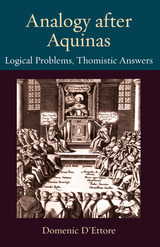
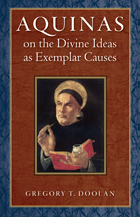
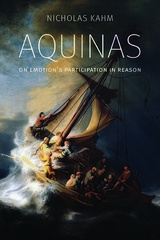
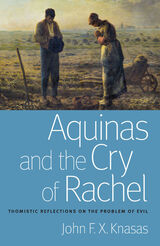
Generally speaking, possible philosophical accounts for evil are two kinds: cosmological or personal. The cosmological account has evils rebounding to the perfection of creation. The personal account would have evils suffered rebounding to the good of the sufferer. Knasas argues that for Aquinas no philosophical resolution of these two kinds of accounts
is possible. This argument is based upon Aquinas's understanding of the human as an intellector of analogical being. Such an understanding establishes two truths. First, the human is by nature only a principal part of the created whole. Second, there is the philosophically discernible possibility of supernatural elevation by the creator.
Hence, as far as philosophy can discern, evil may have a natural explanation or it may have a supernatural one. The Thomistic philosopher has no answer as to why evil exists because that philosopher discerns too many possible ones. In that respect, Aquinas's thinking on evil is similar to his thinking about the philosophical knowledge of the biblical
truth of the world's creation in time. Such a creation is one metaphysical possibility among others. Some authors that Aquinas and the Cry of Rachel considers are: Anthony Flew and Albert Camus, Jacques Maritain and Charles Journet, William Rowe, Marily McCord Adams, William Hasker, John Hick, David Ray Griffin, David Hume, Diogenes Allen, J. L. Mackie, Alvin Plantinga, Richard Swinburne, Bruce Reichenbach,
Brian Davies, and Eleonore Stump.
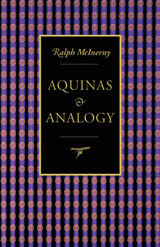
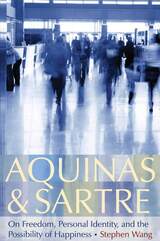

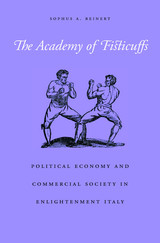
The terms “capitalism” and “socialism” continue to haunt our political and economic imaginations, but we rarely consider their interconnected early history. Even the eighteenth century had its “socialists,” but unlike those of the nineteenth, they paradoxically sought to make the world safe for “capitalists.” The word “socialists” was first used in Northern Italy as a term of contempt for the political economists and legal reformers Pietro Verri and Cesare Beccaria, author of the epochal On Crimes and Punishments. Yet the views and concerns of these first socialists, developed inside a pugnacious intellectual coterie dubbed the Academy of Fisticuffs, differ dramatically from those of the socialists that followed.
Sophus Reinert turns to Milan in the late 1700s to recover the Academy’s ideas and the policies they informed. At the core of their preoccupations lay the often lethal tension among states, markets, and human welfare in an era when the three were becoming increasingly intertwined. What distinguished these thinkers was their articulation of a secular basis for social organization, rooted in commerce, and their insistence that political economy trumped theology as the underpinning for peace and prosperity within and among nations.
Reinert argues that the Italian Enlightenment, no less than the Scottish, was central to the emergence of political economy and the project of creating market societies. By reconstructing ideas in their historical contexts, he addresses motivations and contingencies at the very foundations of modernity.
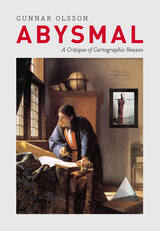
People rely on reason to think about and navigate the abstract world of human relations in much the same way they rely on maps to study and traverse the physical world. Starting from that simple observation, renowned geographer Gunnar Olsson offers in Abysmal an astonishingly erudite critique of the way human thought and action have become deeply immersed in the rhetoric of cartography and how this cartographic reasoning allows the powerful to map out other people’s lives.
A spectacular reading of Western philosophy, religion, and mythology that draws on early maps and atlases, Plato, Kant, and Wittgenstein, Thomas Pynchon, Gilgamesh, and Marcel Duchamp, Abysmal is itself a minimalist guide to the terrain of Western culture. Olsson roams widely but always returns to the problems inherent in reason, to question the outdated assumptions and fixed ideas that thinking cartographically entails. A work of ambition, scope, and sharp wit, Abysmal will appeal to an eclectic audience—to geographers and cartographers, but also to anyone interested in the history of ideas, culture, and art.
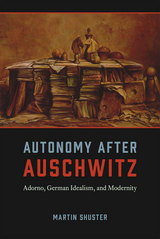
Shuster uncovers dangers in the notion of autonomy as it was originally conceived by Kant. Putting Adorno into dialogue with a range of European philosophers, notably Kant, Hegel, Horkheimer, and Habermas—as well as with a variety of contemporary Anglo-American thinkers such as Richard Rorty, Stanley Cavell, John McDowell, and Robert Pippin—he illuminates Adorno’s important revisions to this fraught concept and how his different understanding of autonomous agency, fully articulated, might open up new and positive social and political possibilities. Altogether, Autonomy after Auschwitz is a meditation on modern evil and human agency, one that demonstrates the tremendous ethical stakes at the heart of philosophy.
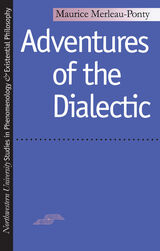
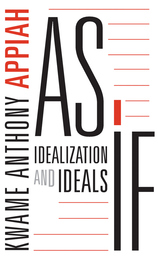
“Appiah is a writer and thinker of remarkable range… [He] has packed into this short book an impressive amount of original reflection… A rich and illuminating book.”
—Thomas Nagel, New York Review of Books
Idealization is a fundamental feature of human thought. We build simplified models to make sense of the world, and life is a constant adjustment between the models we make and the realities we encounter. Our beliefs, desires, and sense of justice are bound up with these ideals, and we proceed “as if” our representations were true, while knowing they are not. In this elegant and original meditation, Kwame Anthony Appiah suggests that this instinct to idealize is not dangerous or distracting so much as it is necessary. As If explores how strategic untruth plays a critical role in far-flung areas of inquiry: decision theory, psychology, natural science, and political philosophy. A polymath who writes with mainstream clarity, Appiah defends the centrality of the imagination not just in the arts but in science, morality, and everyday life.
“Appiah is the rare public intellectual who is also a first-rate analytic philosopher, and the characteristic virtues associated with each of these identities are very much in evidence throughout the book.”
—Thomas Kelly, Notre Dame Philosophical Reviews

Boudon begins by providing an exhaustive and subtle critique of sociological explanations of ideology from early conceptions to its current usage in the works of Barthes, Foucault, Habermas, Sartre, and others. He then offers his own interpretation of the origins and emergence of ideological beliefs. In opposition to those views which associate ideology with irrationalism, Boudon shows that ideologies are a natural ingredient of social life; he develops a rationalist theory that helps to explain why certain ideas are believed by individuals and thereby effective in the social world. Finally, he examines case studies of two modern-day ideologies—developmentalism and Third Worldism.
Moving easily across disciplinary boundaries, Boudon's provocative contribution to a subject of growing significance will be of great interest to scholars in sociology and social theory, as well as philosophy, political science, and development studies.
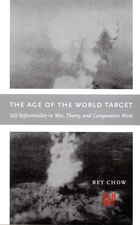
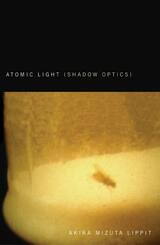
Akira Mizuta Lippit focuses on historical moments in which such modes of avisuality came into being—the arrival of cinema, which brought imagination to life; psychoanalysis, which exposed the psyche; the discovery of x-rays, which disclosed the inside of the body; and the “catastrophic light” of Hiroshima and Nagasaki, which instituted an era of atomic discourses.
With a taut, poetic style, Lippit produces speculative readings of secret and shadow archives and visual structures or phenomenologies of the inside, charting the materiality of what both can and cannot be seen in the radioactive light of the twentieth century.
Akira Mizuta Lippit is professor of cinema, comparative literature, and Japanese culture at the University of Southern California. He is the author of Electric Animal: Toward a Rhetoric of Wildlife (Minnesota, 2000).
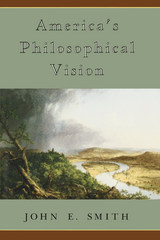
American philosophers like Peirce, James, Royce, and
Dewey have forged a unique philosophical tradition—one
that is rich and complex enough to represent a genuine
alternative to the analytic, phenomenological, and
hermeneutical traditions which have originated in Britain
or Europe.
"In my judgment, John Smith has no equal today in
combining two scholarly qualities: the analysis of
philosophical texts with penetration and rigor, and the
discernment of what it is in these texts that matters.
These qualities are in evidence throughout the essays in
America's Philosophical Vision. Whether he is
evaluating Rorty's view of Dewey; the pragmatic theory of
experience and truth; theories of freedom, creativity,
and the self; Royce's conception of community; or
synoptic philosophic visions, Smith always succeeds in
uniting a comprehensive understanding of philosophic
writings with a sure grasp of their import for human
culture and aspiration. It is a great benefit to
students of American thought that these papers have now
been collected into one volume."—James Gouinlock, Emory
University
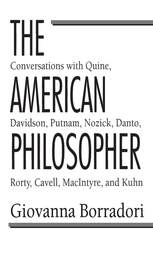
Giovanna Borradori, in her substantial introduction, explains the history of the analytic movement in America and the home-grown reaction against it. In the late nineteenth and early twentieth centuries, American philosophy was a socially engaged interdisciplinary enterprise. In transcendentalism and pragmatism, then the dominant currents in American thought, philosophy was connected to history, psychology, and public issues. But in the 1930s, the imported European movement of logical positivism redefined philosophical discourse in terms of mathematical logic and theory of language. Under the influence of this analytic view, American philosophy became a professionalized discipline, divorced from public debate and intellectual history and antagonistic to the other, more humanistic tradition of continental thought.
The American Philosopher explores the opposition between analytic and continental thought and shows how recent American work has begun to bridge the gap between the two traditions. Through a reexamination of pragmatism, and through an attempt to understand philosophy in a more hermeneutical way, the participants narrow the distance between America's distinctly scientific philosophy and Europe's more literary approach.
Moving beyond classical analytic philosophy, the participants confront each other on a number of topics. The logico-linguistic orientations of Quine and Davidson come up against the more discursive, interdisciplinary agendas of Rorty, Putnam, and Cavell. Nozick's theory of pluralist anarchism goes face-to-face with the aesthetic neo-foundationalism of Danto. And Kuhn's hypothesis of paradigm shifts is measured against MacIntyre's ethics of "virtues."
Borradori's conversations offer an unconventional portrait of the way philosophers think about their work; scholars and students will not be its only beneficiaries, so will everyone who wonders about the current state of American philosophy.
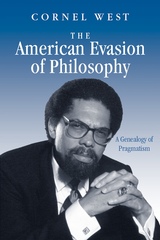
Taking Emerson as his starting point, Cornel West’s basic task in this ambitious enterprise is to chart the emergence, development, decline, and recent resurgence of American pragmatism. John Dewey is the central figure in West’s pantheon of pragmatists, but he treats as well such varied mid-century representatives of the tradition as Sidney Hook, C. Wright Mills, W. E. B. Du Bois, Reinhold Niebuhr, and Lionel Trilling. West’s "genealogy" is, ultimately, a very personal work, for it is imbued throughout with the author’s conviction that a thorough reexamination of American pragmatism may help inspire and instruct contemporary efforts to remake and reform American society and culture.
"West . . . may well be the pre-eminent African American intellectual of our generation."—The Nation
"The American Evasion of Philosophy is a highly intelligent and provocative book. Cornel West gives us illuminating readings of the political thought of Emerson and James; provides a penetrating critical assessment of Dewey, his central figure; and offers a brilliant interpretation—appreciative yet far from uncritical—of the contemporary philosopher and neo-pragmatist Richard Rorty. . . . What shines through, throughout the work, is West's firm commitment to a radical vision of a philosophic discourse as inextricably linked to cultural criticism and political engagement."—Paul S. Boyer, professor emeritus of history, University of Wisconsin–Madison.
Wisconsin Project on American Writers
Frank Lentricchia, General Editor
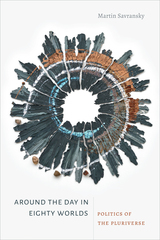
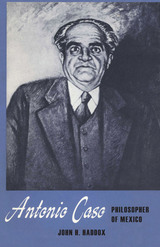
Few men have had as much cultural and educational influence on their own countries as the philosopher and educator Antonio Caso (1883-1946). He was above all a patriot of his beloved Mexico, and he sought to deliver his humanitarian message to his countrymen.
In his youth, after the revolt against Díaz, he was a member of the Ateneo de la Juventud, a group that sought to bring Mexico, spiritually and economically, back to the Mexicans. Caso realized that this effort involved the forming of a national consciousness among his people, whom he saw divided by their private and public interests.
As an educator of Mexican youth for more than thirty years, Caso sought to imbue in his students the desire to search and to question. He saw education as a perpetual search for truth, and his own life and philosophy reflect this search. He rejected any system that proposed to describe all of reality, and he despised all dogmas—official or unofficial. He particularly fought against positivism and Marxism, systems current in his youth.
The first part of this book is an introduction to the philosophical and educational ideas of Caso, as well as to the intellectual and political ideas in his life. Mr. Haddox skillfully shows the development of Caso's ideas and how they took shape from his own reading as well as from the experiences of his age and of his country. The second part contains Mr. Haddox's translations of selections from Caso's writings. They give a moving picture of Caso's hopes for Mexico and for humanitiy.
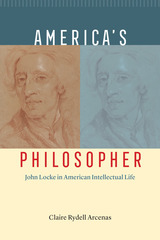
The influence of polymath philosopher John Locke (1632–1704) can still be found in a dizzying range of fields, as his writings touch on issues of identity, republicanism, and the nature of knowledge itself. Claire Rydell Arcenas’s new book tells the story of Americans’ longstanding yet ever-mutable obsession with this English thinker’s ideas, a saga whose most recent manifestations have found the so-called Father of Liberalism held up as a right-wing icon.
The first book to detail Locke’s trans-Atlantic influence from the eighteenth century until today, America’s Philosopher shows how and why interpretations of his ideas have captivated Americans in ways few other philosophers—from any nation—ever have. As Arcenas makes clear, each generation has essentially remade Locke in its own image, taking inspiration and transmuting his ideas to suit the needs of the particular historical moment. Drawing from a host of vernacular sources to illuminate Locke’s often contradictory impact on American daily and intellectual life from before the Revolutionary War to the present, Arcenas delivers a pathbreaking work in the history of ideas.
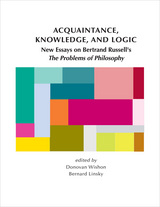


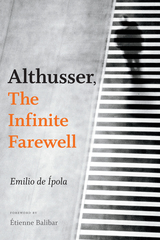
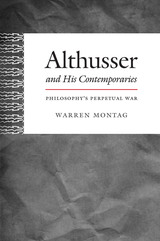
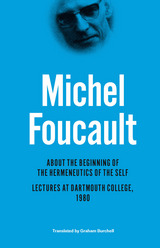
Foucault analyzes the practices of self-examination and confession in Greco-Roman antiquity and in the first centuries of Christianity in order to highlight a radical transformation from the ancient Delphic principle of “know thyself” to the monastic precept of “confess all of your thoughts to your spiritual guide.” His aim in doing so is to retrace the genealogy of the modern subject, which is inextricably tied to the emergence of the “hermeneutics of the self”—the necessity to explore one’s own thoughts and feelings and to confess them to a spiritual director—in early Christianity. According to Foucault, since some features of this Christian hermeneutics of the subject still determine our contemporary “gnoseologic” self, then the genealogy of the modern subject is both an ethical and a political enterprise, aiming to show that the “self” is nothing but the historical correlate of a series of technologies built into our history. Thus, from Foucault’s perspective, our main problem today is not to discover what “the self” is, but to try to analyze and change these technologies in order to change its form.

The essays in this collection assess the impact of Michel Foucault’s work on the conditions of disciplinary knowledge in humanistic studies and speculate on the directions we might take from his work. They cover a wide range of fundamental concerns: from philosophy of knowledge in both theoretical and applied forms to philology, history, psychoanalysis, feminism, and politics. The result is a lively debate and further probing beyond disciplinary boundaries. After Foucault will interest political theorists, feminists, and scholars of history, philosophy, and literature.
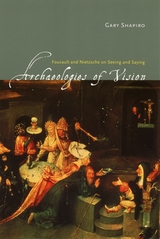
Shapiro explores the whole range of Foucault's writings on visual art, including the theory of visual resistance, the concept of the phantasm or simulacrum, and his interrogation of the relation of painting, language, and power in artists from Bosch to Warhol. Shapiro also shows through an excavation of little-known writings that the visual is a major theme in Nietzsche's thought. In addition to explaining the significance of Nietzsche's analysis of Raphael, Dürer, and Claude Lorrain, he examines the philosopher's understanding of the visual dimension of Greek theater and Wagnerian opera and offers a powerful new reading of Thus Spoke Zarathustra.
Archaeologies of Vision will be a landmark work for all scholars of visual culture as well as for those engaged with continental philosophy.
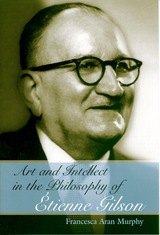
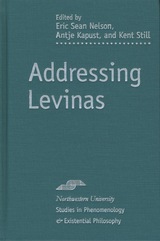
In their radical singularity, these essays reveal the inalienable alterity at the heart of Levinas's ethics. At the same time, each essay remains open to the others, and to the perspectives and positions they advocate. Thus the volume, in its quality and diversity, enacts an authentic encounter with Levinas's thought, embodying an intellectual ethics by virtue of its style. Bringing together contributions from philosophy, theology, literary theory, gender studies, and political theory, this book offers a deeper and more thorough encounter with Levinas's ethics than any yet written.
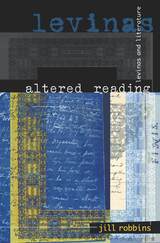
With an attitude at once respectful and interrogative, closely attentive to Levinas's texts while in dialogue with readings by Derrida, Blanchot, and Bataille, Altered Reading shows how the thread of the literary leads directly to the internal tensions of Levinas's ethical discourse. Jill Robbins provides a comprehensive critical account of Levinas's early and mature philosophy as well as later key transitional essays. In an invaluable appendix, she includes her own translation of an important, previously untranslated essay by Bataille on Levinas.
Altered Reading will interest philosophers, literary critics, scholars of religion, and others drawn to Levinas's work.
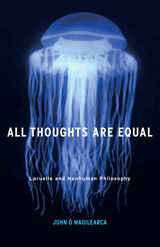
All Thoughts Are Equal is both an introduction to the work of French philosopher François Laruelle and an exercise in nonhuman thinking. For Laruelle, standard forms of philosophy continue to dominate our models of what counts as exemplary thought and knowledge. By contrast, what Laruelle calls his “non-standard” approach attempts to bring democracy into thought, because all forms of thinking—including the nonhuman—are equal.
John Ó Maoilearca examines how philosophy might appear when viewed with non-philosophical and nonhuman eyes. He does so by refusing to explain Laruelle through orthodox philosophy, opting instead to follow the structure of a film (Lars von Trier’s documentary The Five Obstructions) as an example of the non-standard method. Von Trier’s film is a meditation on the creative limits set by film, both technologically and aesthetically, and how these limits can push our experience of film—and of ourselves—beyond what is normally deemed “the perfect human.”
All Thoughts Are Equal adopts film’s constraints in its own experiment by showing how Laruelle’s radically new style of philosophy is best presented through our most nonhuman form of thought—that found in cinema.

Against the common view, which restricts the range of reason to logic and truth-theory alone, Romano advocates "big-hearted rationality," including in it what is only ostensibly its opposite, that is, sensibility, and locating in sensibility itself the roots of the categorical forms of thought. Contrary to what was claimed by the "linguistic turn," language is not a self-enclosed domain; it cannot be conceived in its specificity unless it is led back to its origin in the pre-predicative or pre-linguistic structure of experience itself.
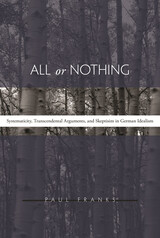
Interest in German Idealism--not just Kant, but Fichte and Hegel as well--has recently developed within analytic philosophy, which traditionally defined itself in opposition to the Idealist tradition. Yet one obstacle remains especially intractable: the Idealists' longstanding claim that philosophy must be systematic. In this work, the first overview of the German Idealism that is both conceptual and methodological, Paul W. Franks offers a philosophical reconstruction that is true to the movement's own times and resources and, at the same time, deeply relevant to contemporary thought.
At the center of the book are some neglected but critical questions about German Idealism: Why do Fichte, Schelling, and Hegel think that philosophy's main task is the construction of a system? Why do they think that every part of this system must derive from a single, immanent and absolute principle? Why, in short, must it be all or nothing? Through close examination of the major Idealists as well as the overlooked figures who influenced their reading of Kant, Franks explores the common ground and divergences between the philosophical problems that motivated Kant and those that, in turn, motivated the Idealists. The result is a characterization of German Idealism that reveals its sources as well as its pertinence--and its challenge--to contemporary philosophical naturalism.
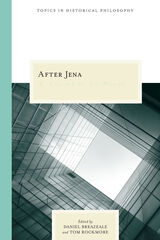
The career of J. G. Fichte, a central figure in German idealism and in the history of philosophy, divides into two distinct phases: the first period, in which he occupied the chair of critical philosophy at the University of Jena (1794-1799); and the following period, after he left Jena for Berlin. Due in part to the inaccessibility of the German texts, Fichte scholarship in the English-speaking world has tended to focus on the Jena period, neglecting the development of this major thinker's mature development. The essays collected in this book begin to correct this imbalance. Concerned in a variety of ways with Fichte's post-Jena philosophy, these essays by distinguished and emerging scholars demonstrate the depth and breadth of Fichte scholarship being done in English.
With an introduction that locates the essays in philosophical and historical terms, the book divides into three related categories: Fichte’s development, his view of religion, and other aspects of his "popular" (or not-so-popular) philosophy. From a wide range of perspectives, the essays show how Fichte’s later development reflects the philosophical concerns of his time, the specific debates in which he engaged, and the complex events of his philosophical career.
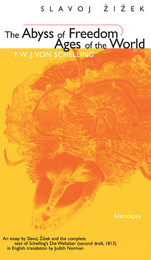
Zizek argues that Schelling's most profound thoughts are found in the series of three consecutive attempts he made to formulate the "ages of the world/Weltalter," the stages of the self-development of the Absolute. Of the three versions, claims Zizek, it is the second that is the most eloquent and definitive encompassing of Schelling's lyrical thought. It centers on the problem of how the Absolute (God) himself, in order to become actual, to exist effectively, has to accomplish a radically contingent move of acquiring material, bodily existence. Never before available in English, this version finally renders accessible one of the key texts of modern philosophy, a text that is widely debated in philosophical circles today.
The Abyss of Freedom is Zizek's own reading of Schelling based upon Lacanian psychoanalytic theory. It focuses on the notion that Lacan's theory--which claims that the symbolic universe emerged from presymbolic drives--is prefigured in Schelling's idea of logos as given birth to from the vortex of primordial drives, or from what "in God is not yet God." For Zizek, this connection is monumental, showing that Schelling's ideas forcefully presage the post-modern "deconstruction" of logocentrism.
Slavoj Zizek is not a philosopher who stoops to conquer objects but a radical voice who believes that philosophy is nothing if it is not embodied, nothing if it is only abstract. For him, true philosophy always speaks of something rather than nothing. Those interested in the genesis of contemporary thought and the fate of reason in our "age of anxiety" will find this coupling of texts not only philosophically relevant, but vitally important.
Slavoj Zizek is the author of The Sublime Object of Ideology, Tarrying with the Negative: Kant, Hegel and the Critique of Ideology, and most recently, The Indivisible Remainder: An Essay on Schelling and Related Matters. Currently he is a Senior Researcher at the Institute for Social Sciences, University of Ljubljana. Judith Norman is Assistant Professor of Philosophy at Trinity University in San Antonio, Texas.
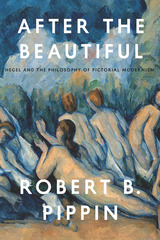
While Hegel could never engage modernist painting, he did have an understanding of modernity, and in it, art—he famously asserted—was “a thing of the past,” no longer an important vehicle of self-understanding and no longer an indispensable expression of human meaning. Pippin offers a sophisticated exploration of Hegel’s position and its implications. He also shows that had Hegel known how the social institutions of his day would ultimately fail to achieve his own version of genuine equality, a mutuality of recognition, he would have had to explore a different, new role for art in modernity. After laying this groundwork, Pippin goes on to illuminate the dimensions of Hegel’s aesthetic approach in the path-breaking works of Manet, the “grandfather of modernism,” drawing on art historians T. J. Clark and Michael Fried to do so. He concludes with a look at Cézanne, the “father of modernism,” this time as his works illuminate the relationship between Hegel and the philosopher who would challenge Hegel’s account of both modernity and art—Martin Heidegger.
Elegantly inter-weaving philosophy and art history, After the Beautiful is a stunning reassessment of the modernist project. It gets at the core of the significance of modernism itself and what it means in general for art to have a history. Ultimately, it is a testament, via Hegel, to the distinctive philosophical achievements of modernist art in the unsettled, tumultuous era we have inherited.
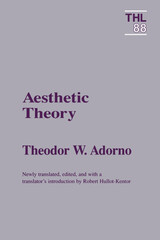
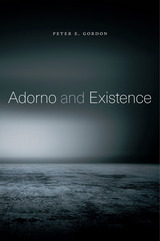
From the beginning to the end of his career, the philosopher Theodor W. Adorno sustained an uneasy but enduring bond with existentialism. His attitude overall was that of unsparing criticism, verging on polemic. In Kierkegaard he saw an early paragon for the late flowering of bourgeois solipsism; in Heidegger, an impresario for a “jargon of authenticity” cloaking its idealism in an aura of pseudo-concreteness and neo-romantic kitsch. Even in the straitened rationalism of Husserl’s phenomenology Adorno saw a vain attempt to break free from the prison-house of consciousness.
“Gordon, in a detailed, sensitive, fair-minded way, leads the reader through Adorno’s various, usually quite vigorous, rhetorically pointed attacks on both transcendental and existential phenomenology from 1930 on…[A] singularly illuminating study.”
—Robert Pippin, Critical Inquiry
“Gordon’s book offers a significant contribution to our understanding of Adorno’s thought. He writes with expertise, authority, and compendious scholarship, moving with confidence across the thinkers he examines…After this book, it will not be possible to explain Adorno’s philosophical development without serious consideration of [Gordon’s] reactions to them.”
—Richard Westerman, Symposium
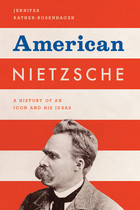
If you were looking for a philosopher likely to appeal to Americans, Friedrich Nietzsche would be far from your first choice. After all, in his blazing career, Nietzsche took aim at nearly all the foundations of modern American life: Christian morality, the Enlightenment faith in reason, and the idea of human equality. Despite that, for more than a century Nietzsche has been a hugely popular—and surprisingly influential—figure in American thought and culture.
In American Nietzsche, Jennifer Ratner-Rosenhagen delves deeply into Nietzsche's philosophy, and America’s reception of it, to tell the story of his curious appeal. Beginning her account with Ralph Waldo Emerson, whom the seventeen-year-old Nietzsche read fervently, she shows how Nietzsche’s ideas first burst on American shores at the turn of the twentieth century, and how they continued alternately to invigorate and to shock Americans for the century to come. She also delineates the broader intellectual and cultural contexts within which a wide array of commentators—academic and armchair philosophers, theologians and atheists, romantic poets and hard-nosed empiricists, and political ideologues and apostates from the Left and the Right—drew insight and inspiration from Nietzsche’s claims for the death of God, his challenge to universal truth, and his insistence on the interpretive nature of all human thought and beliefs. At the same time, she explores how his image as an iconoclastic immoralist was put to work in American popular culture, making Nietzsche an unlikely posthumous celebrity capable of inspiring both teenagers and scholars alike.
A penetrating examination of a powerful but little-explored undercurrent of twentieth-century American thought and culture, American Nietzsche dramatically recasts our understanding of American intellectual life—and puts Nietzsche squarely at its heart.
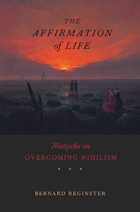
Among all the great thinkers of the past two hundred years, Nietzsche continues to occupy a special place--not only for a broad range of academics but also for members of a wider public, who find some of their most pressing existential concerns addressed in his works. Central among these concerns is the question of the meaning of a life characterized by inescapable suffering, at a time when the traditional responses inspired by Christianity are increasingly losing their credibility. While most recent studies of Nietzsche's works have lost sight of this fundamental issue, Bernard Reginster's book The Affirmation of Life brings it sharply into focus.
Reginster identifies overcoming nihilism as a central objective of Nietzsche's philosophical project, and shows how this concern systematically animates all of his main ideas. In particular, Reginster's work develops an original and elegant interpretation of the will to power, which convincingly explains how Nietzsche uses this doctrine to mount a critique of the dominant Christian values, to overcome the nihilistic despair they produce, and to determine the conditions of a new affirmation of life. Thus, Reginster attributes to Nietzsche a compelling substantive ethical outlook based on the notions of challenge and creativity--an outlook that involves a radical reevaluation of the role and significance of suffering in human existence.
Replete with deeply original insights on many familiar--and frequently misunderstood--Nietzschean concepts, Reginster's book will be essential to anyone approaching this towering figure of Western intellectual history.
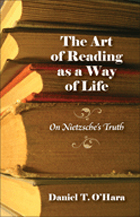
The shape of this critical tracing begins, however, in the middle of his career with The Gay Science andmoves on to Thus Spoke Zarathustra, which Nietzsche believed was the central work of his life. It then revalues Ecce Homo, Nietzsche’s final autobiographical statement about his life and career, and concludes with a comparative analysis of two works from the beginning and end of that career: respectively, The Birth of Tragedy and The Anti-Christ. O’Hara’s highly original study, which uses Badiou’s theory of the truth-event as a guide, will surely provoke larger conversations across many disciplines.
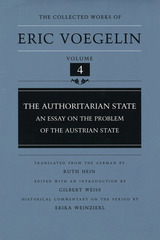
Published in Vienna in 1936, The Authoritarian State by Eric Voegelin has remained virtually unknown to the public until now. Sales of the German edition were halted following the Nazi invasion of Austria in 1938, and the entire printing was later destroyed by wartime bombing. In this volume, Voegelin offers a critical examination of the most prominent European theories of state and constitutional law of the period while providing a political and historical analysis of the Austrian situation. He discusses the dismissal of Parliament in 1933, the civil war, the murder of Federal Chancellor Dollfuss, the adoption of the "Authoritarian Constitution" of 1934, and the predicament of being sandwiched between Hitler and Mussolini.
A radical critique of Hans Kelsen's pure theory of law lies at the heart of this work, marking Voegelin's definitive departure from Neo-Kantian epistemology. For the first time, Voegelin elaborates on the important distinction between theoretical concepts and political symbols as a basis for explaining the nontheoretical and speculative character of ideologies, both left and right. He shows that total and authoritarian are symbols of ideological self-interpretation that have no theoretical value, a distinction basic to his later work in The New Science of Politics.
Available for the first time in English, The Authoritarian State is a valuable addition to the Voegelin canon and to the field of intellectual history in general.
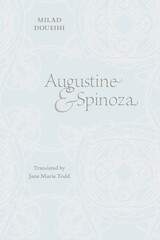
Election and grace are two key concepts that not only have shaped the relations between Judaism and Christianity, but also have formed a cornerstone of the Western philosophical discourse on the evolution and progress of humanity. Though Augustine and Spinoza can be shown to share a methodological approach to these concepts, their conclusions remain radically different. For the Church Father Augustine, grace defines human nature by the potential availability of divine intervention, thus setting the stage for the institutional and political legitimacy of the Church, the Christian state, and its justice. For Spinoza, on the other hand, election represents a unique but local form of divine intervention, marked by geography and historical context.
Milad Doueihi maps out the consequences of such an encounter between these two thinkers in terms of their philosophical heritage and its continued relevance for contemporary discussions of religious diversity and autonomy.
Augustine asserts a theological foundation for the political, whereas Spinoza radically separates philosophy, and thus authority, from theology in order to solicit a political democracy. In this sharply argued and deeply learned book, Milad Doueihi shows us how interconnections between the two thinkers have come to shape Western philosophy.

Hungarian by birth, she was one of the best known dissident Marxists in central Europe in the 1960's and 1970's. Since her forced immigration she has held visiting lectureships all over the world and has been the Hannah Arendt Professor of Philosophy at the New School in New York for the last twenty years.
This introduction to her thought is ideal for all students of philosophy, political theory and sociology. Grumley explores Heller's early work, elaborating her relation to Lukacs and the evolution of her own version of Marxism. He examines the subsequent break with Marxism and the initial development of an alternative radical philosophy. Finally, he explains and assesses her mature reflective post-modernism, a perspective that is both sceptical and utopian, that upholds a critical humanist perspective just as it critiques contemporary democratic culture.

Before the Cultural Revolution, Ai Ssu-ch’i (1910–1966) was one of Communist China’s foremost Marxist philosophers, second only to Chairman Mao himself. Ai was attracted to Marxism-Leninism as a young student in China and Japan, and wrote numerous books and articles seeking to explain the complexities of the philosophy in language everyone could understand. His writings were enormously popular during the 1930s and 1940s, and went through many printings despite continuous harassment from Kuomintang censors.
This volume is the first full-length study of Ai Ssu-ch’i. In spite of his popularity, Ai has largely been ignored in recent histories of the Chinese Communist movement, because his importance lies in his function as a popularizer rather than as an original thinker. However, it can be shown that Mao and other leaders of the movement were influenced by him, and his writings and translations certainly helped to attract many young Chinese intellectuals to the Communist cause.
The recent flood of reminiscence literature in China has reserved a special place of prominence for Ai Ssu-ch’i. This is not only because he was so admired by Mao, but also because he devoted his life so enthusiastically and wholeheartedly to the Party. Joshua Fogel traces the pattern of this devotion via Ai’s crucial role in spreading Marxist-Leninist thought among Chinese intellectuals.
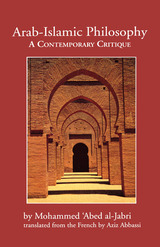
The distinguished Moroccan philosopher Mohammed Abed al-Jabri, in this summary of his own work, examines the status of Arab thought in the late twentieth century. Al-Jabri rejects what he calls the current polarization of Arab thought between an imported modernism that disregards Arab tradition and a fundamentalism that would reconstruct the present in the image of an idealized past.
Both past and present intellectual currents are examined. Al-Jabri first questions the current philosophical positions of the liberals, the Marxists, and the fundamentalists. Then he turns to history, exploring Arab philosophy in the tenth and twelfth centuries, a time of political and ideological struggle. In the writings of Ibn Hazm and Averroës, he identifies the beginnings of Arab rationalism, a rationalism he traces through the innovative fourteenth–century work of Ibn Khaldun.
Al-Jabri offers both Western readers and his own compatriots a radical new approach to Arab thought, one that finds in the past the roots of an open, critical rationalism which he sees as emerging in the Arab world today.
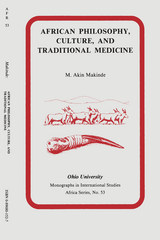
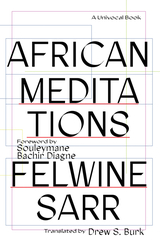
An influential thinker’s fascinating reflections and meditations on reacclimating to his native Senegal as a young academic after years of study abroad
The call to morning prayer. A group run at daybreak along the Corniche in Dakar. A young woman shedding tears on a beach as her friends take a boat to Europe. In African Meditations, paths to enlightenment collide with tales of loss and ruminations, musical gatherings, and the everyday sights and sounds of life in West Africa as a young philosopher and creative writer seeks to establish himself as a teacher upon his return to Senegal, his homeland, after years of study abroad.
A unique contemporary portrait of an influential, multicultural thinker on a spiritual quest across continents—reflecting on his multiple literary influences along with French, African Francophone, and Senegalese tribal cultural roots in a homeland with a predominantly Muslim culture—African Meditations is a seamless blend of autobiography, journal entries, and fiction; aphorisms and brief narrative sketches; humor and Zen reflections.
Taking us from Saint-Louis to Dakar, Felwine Sarr encounters the rhythms of everyday life as well as its disruptions such as teachers’ strikes and power outages while traversing a semi-surrealistic landscape. As he reacclimates to his native country after a life in France, we get candid glimpses, both vibrant and hopeful, sublime and mundane, into his Zen journey to resecure a foothold in his roots and to navigate academia, even while gleaning something of the good life, of joy, amid the struggles of life in Senegal.
